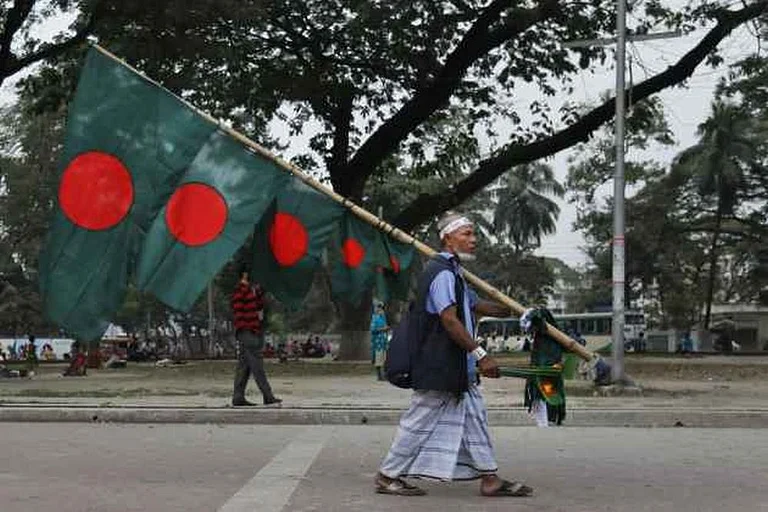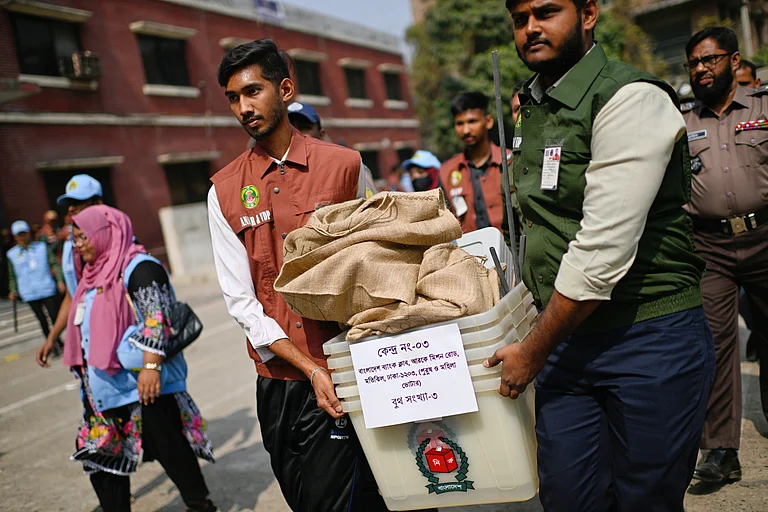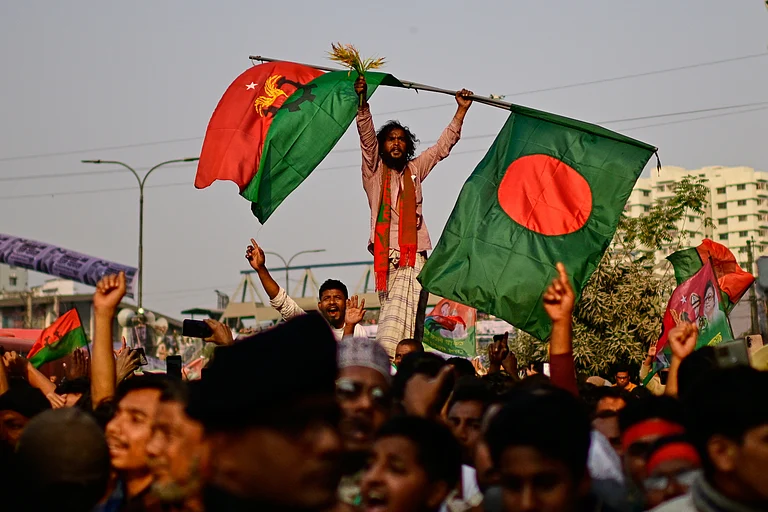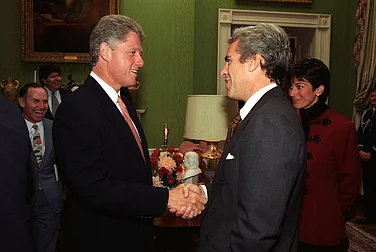Asian rivals India and China have not joined the chorus led by the US and European nations to install a neutral government ahead of the 2024 national elections in Bangladesh. Both countries have a common interest in wanting to see Sheikh Hasina’s Awami League back in power, though neither nation accepts that they have any favourites in the race.
Despite increasingly warmer ties with the US, and being a part of the Indo-Pacific anti-China "quad" led by Washington, India has not toed the American line on Bangladesh. This is mainly due to India’s security concerns as Bangladesh borders its sensitive northeastern region.
“The American view on Bangladesh is different from that of India: for India, a secular Bangladesh that keeps India’s national security interests in mind and balances China is preferable to an Islamist Bangladesh that has closer relations with Pakistan and China. So, for India, the national security imperative overrules the democratic impulse,” says Aparna Pande of the Washington-based Hudson Institute.
Sheikh Hasina has been good for India and has always kept in mind Indian interests, despite expanding Chinese footprints in the infrastructure sector. New Delhi has enough trust in Sheikh Hasina to believe that she would not let down India’s security interests.
The BNP which has always taunted the PM for her close links with India, however, see the situation differently.
According to the BNP, Sheikh Hasina has New Delhi’s backing and so long as she has that she remains adamant about a caretaker government. India has stoutly denied these charges.
"Meetings on the Bangladesh election are being held in Delhi. It is part of taking away the opportunity of Bangladesh people to determine their destiny, which is not dignified for Bangladesh," BNP senior joint secretary general Ruhul Kabir Rizvi, said at a virtual press conference, according to news reports from Dhaka. The BNP has consistently accused Sheikh Hasina of being an "Indian stooge". Another report questioned whether the Awami League government has been in power at the "mercy" of India, BNP Secretary General Mirza Fakhrul Islam Alamgir demanded an explanation for the foreign minister's recent statement on seeking India's backing to keep PM Sheikh Hasina in power.
"Ministers from a rally of the Awami League in Dhaka issued various threats and used terrorist language. When you are issuing so many threats, why does your foreign minister seek India's help to sustain your government and your prime minister?" he said.
India has repeatedly said it does not interfere in domestic affairs of other countries and has nothing to do with the Bangladesh elections.
India played a crucial role in Bangladesh's independence struggle and when the Awami League came to power in 2009, Dhaka handed over a number of ULFA leaders who had long made Bangladesh their base. Since then, the United Liberation Front of Asom has negotiated a peace settlement that was signed recently in the presence of Home Minister Amit Shah in Delhi. Relations between India and Bangladesh under Hasina had flowered through successive governments as she clearly understood India’s security concerns.
Political relations with the Awami League had always been excellent. India is confident that with Sheikh Hasina in office, the Islamic radicals are held at bay. The US and European nations have been critical of the summary trials of the Jamaat leaders for war crimes during the Bangladesh Liberation War. There was no criticism by New Delhi. India understood that those who aided the Pakistan army’s crackdown on the people of Bangladesh had to face trial and the death penalty for heinous crimes during the war. Without this, it was difficult for many Awami League supporters to a closure for Awami League supporters who were ruthlessly hounded and killed. During the war, several Jamaat-e-Islami leaders were hanged for war crimes.
India had never warmed up to the Bangladesh Nationalist Party, calling it out as pro-Pakistan, and many within that group were also averse to severing ties with Pakistan. The BNP and much of its support base regard New Delhi as the Big Brother that dictates terms to Sheikh Hasina. Of late, the BNP has made overtures to India but so far the efforts to mend ties have not succeeded and India remains suspicious of the BNP.
In recent years, China’s footprint in Bangladesh has grown significantly. More so after 2016 when Bangladesh like other countries in the region joined China’s Belt and Road Initiative. Much before this in 2012, Bangladesh was beholden to China for stepping in when the World Bank pulled out of a mega project over the Padma River on grounds of large-scale corruption by officials. When the World Bank made these accusations public, the government took it to heart. The Chinese stepped in with the funds and the $3.6 billion project was inaugurated in 2022. China has since built several infrastructure projects in the country. In November 2023, the Padma Bridge Rail Link was also completed. This was the largest project under the BRI initiative. China is involved in several other projects in Bangladesh too. China wants continuity and stability for the success of its BRI plans and believes that a strong Awami League is best fitted to deliver, though in the past, it too had had excellent ties with the BNP.
India’s projects are not as high profile or as expensive as China’s. But in November this year, Modi and Hasina inaugurated three India-assisted projects there under the Bay of Bengal initiative. These include the Akhaura-Agartala Cross-Border Rail link and the Khulna-Mongla Port Rail line, facilitating better connectivity between both neighbours as well as inside Bangladesh. The third is the Maitree Super Thermal Power project built with Indian concessional finance of US 1.6 billion. This is located in the Khulna sub-division of Bangladesh.
Ironically, both India and China are involved in the Khulna-Mongla Port project, though they are doing different sections of the project. It speaks volumes for Sheikh Hasina’s government to be able to balance relations between the two Asian giants.
"…India and China in quick succession signalled that they were moving forward. Port officials insist the projects are separate and deny that the shipping hub has become a focus of geopolitical jostling around the Indian Ocean," Japan’s Asia. Nikkei portal reported. So it is natural for both India and Bangladesh to quietly back Sheikh Hasina.
India has been much more low-key during the run-up to the current elections. But in 2014, faced with the BNP boycott of the elections, New Delhi played a much more prominent role in the polls and sided openly with the government. That was to date the most violent election Bangladesh witnessed, with the Jamaat acting as the stormtroopers of the BNP. India has put all its eggs in the Sheikh Hasina League camp. The problem is that the PM is also getting on in years and there is no clear line of succession at the moment. Many analysts in India believe India should also be looking at a future when Sheikh Hasina is not in the scene. So keeping the lines open to the BNP would be a good option.











.jpg?auto=format%2Ccompress&fit=max&format=webp&w=768&dpr=1.0)















